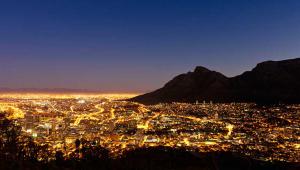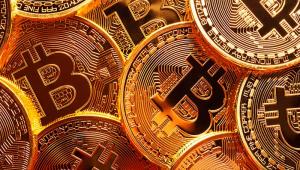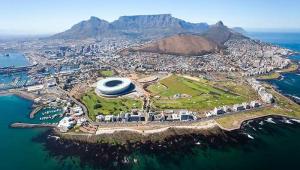The government of struggling Zimbabwe had hoped the money could help stabilise the economy and address the country’s fuel shortages.
But a spokesperson from South Africa Treasury said the country “does not have that kind of money”.
The spokesperson confirmed that officials from Zimbabwe had approached their department in December to ask for the billion dollar loan.
Zimbabwe was hit by anti-government protests last week, after the president announced a hike in fuel prices. Police have said at least three people have died during the unrest, although human rights groups say evidence suggests at least 12 people were killed.
President Emmerson Mnangagwa said on Sunday he would return to Zimbabwe and skip the World Economic Forum in Davos this week to address the crisis and public anger.
The fuel hike means petrol prices rose from $1.24 a litre to $3.31, with diesel up from $1.36 a litre to $3.11 overnight.
Zimbabwe is also dealing with a shortage of physical cash. Earlier this month civil servants threatened to strike over salaries, as inflation is running high but wages have stagnated.
The government has plans to cut the fiscal deficit by more than half to 5% of GDP this year. It has also said it would cut the wage bill to 70% of the budget from the 90% it is currently.







